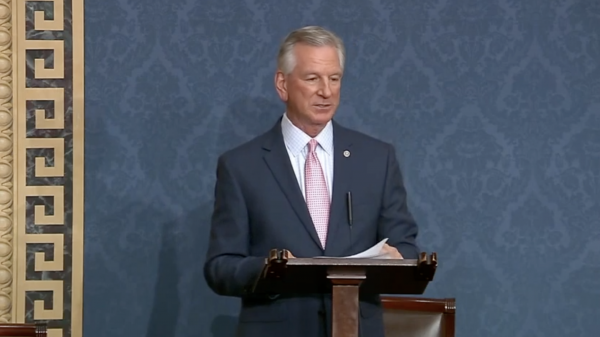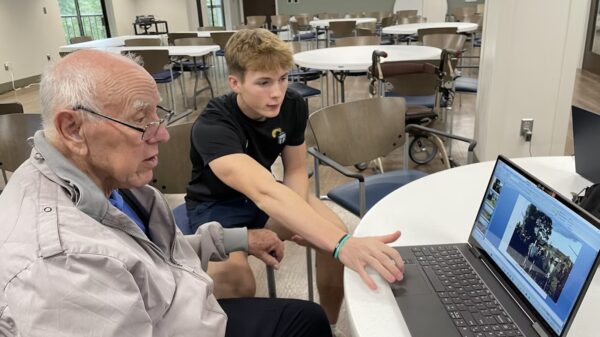Telemedicine holds the potential to reshape health care delivery in rural America. Advances in technology and broadband connectivity could open up a world in which farmers and factory workers in rural Black Belt counties have the same access to world-class medical specialists that residents of the world’s largest and wealthiest cities already take for granted.
As the administrator of a rural hospital in Choctaw County, I understand firsthand that “telemedicine” is more than just a buzzword to be thrown around in Silicon Valley pitch meetings. It has the potential to fundamentally change people’s lives right here in rural Alabama. But realizing this vision is going to take a lot of hard work and collaboration between technologists, health care professionals, and patient advocates – and it’s also going to require smart public policies that encourage innovation and ensure we have the infrastructure needed to support it.
Broadband policy, in particular, is an area crying out for sensible federal policy solutions. But unfortunately, well-intentioned efforts in Washington to protect the open internet and close the rural deployment gap seem to have crashed up against the shoals of partisanship and disfunction. Now more than ever, we need leaders of both parties to work together to find a path forward.
The future of telemedicine is intertwined with the ongoing national debate about net neutrality, the principle that big internet companies shouldn’t be able to block, throttle, or unfairly prioritize internet traffic. Many telemedicine applications – such as remote video consultations, real-time diagnostic exams, or the sharing of ultra-high-resolution x-rays or MRI scans – use significant bandwidth. As technology advances, many future applications may also require higher standards for latency (the delay between sender and receiver) or data packet loss than are currently needed for typical everyday web browsing or email checking.
Simply put, many of these revolutionary use-cases may not be possible if network operators have the power to push telemedicine apps into “slow lanes.” And telemedicine startups’ business models might not work if they had to outbid Silicon Valley giants like Google or Netflix for access to privileged “fast lanes.” The mere threat of such future risks might limit startups’ ability to attract the investment capital they need to fund R&D and bring their products to market. That’s why passing a federal net neutrality law, after more than a decade of debate and delay, is so important.
At the same time, telehealth advances will only be able to transform health delivery in rural Alabama if we have adequate high-speed broadband infrastructure in place. In many rural pockets of our state, broadband access is inadequate or non-existent. Closing this gap will require broadband providers to significantly expand their infrastructure investments to reach underserved areas.
But over the past several years, in the absence of any Congressional action on net neutrality laws, the issue has been left up to political appointees at the FCC. As a result, broadband regulatory policies have whipsawed from one extreme to the other. Court cases and appeals – including the most recent, whose ruling was announced just this month – have failed to produce stable rules. And this back-and-forth trend looks likely to continue with every change of party power in Washington unless Congress finally steps in and passes a permanent law on a bipartisan basis. These wild swings in policy aren’t helpful to encouraging increased investment in broadband infrastructure.
In April, the House passed on a party-line basis a bill that married net neutrality protections with a proposal to reclassify broadband as a “Title II” public utility, a framework originally created in the 1930s to regulate telephone monopolies. But leaders in the Republican-controlled Senate have made it clear the House-passed version is “dead on arrival.” In this case, the controversy isn’t over the basic question of net neutrality, which has broad and bipartisan support; instead, critics have argued the utility classification may be a long-term drag on infrastructure investment, which could slow deployment.
If nothing happens in Washington to break the current impasse, the issue will remain unresolved for years to come, and in the meantime consumers and startups will be left without any enforceable net neutrality rules to protect the open internet. That’s not good for either political party, and it’s not good for rural Alabama. We urgently need our lawmakers to find a bipartisan path forward.
Sen. Doug Jones has been a staunch supporter of net neutrality, and as one of the more moderate and pragmatic Senators in Washington, he’s uniquely positioned to help bring lawmakers together. Likewise, Sen. Richard Shelby, as one of the most powerful committee chairmen in the Senate, is a respected and influential voice among his Republican colleagues. I urge both of our Senators to take a leading role in trying to bring colleagues together to find a bipartisan path forward. In this era of divided government, that’s the only way a net neutrality law can pass.
J.W. Cowan is CEO of Choctaw General Hospital and the former chair of the Choctaw County Democratic Party.























































